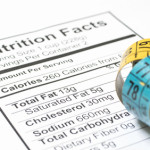Salt Intake and Blood Pressure in Cerebral Small Vessel Disease

Excess salt consumption is associated with increased risk of stroke and cardiovascular complications, such as cerebral small vessel disease. Several studies have established a causal relation between daily dietary salt intake and high blood pressure, which has a prominent role in promoting cardiovascular diseases. However, high sodium might weigh in on the development of cerebral…
Aerated Drinks and Appetite Control

Incorporating air into food ingredients by sieving, creaming, whisking or beating makes them lighter and creates more volume. Several studies have shown that the consumption of aerated foods leads to increased satiety and helps control hunger, but the way aeration contributes to satisfaction is still not fully understood. In a recent study, researchers from the…
Can Triglyceride Content Predict Metabolic Effects of Weight Gain?

Along with obesity comes a wide spectrum of other health problems, such as metabolic complications, that come under the heading of metabolic syndrome. This syndrome consists of a group of conditions – anomalous cholesterol levels, increased blood sugar values, extra body fat around the waist, hypertension, and above all, insulin resistance – that may cause…
Effects of Dietary Macronutrient Content on the Sensation of Fullness

The feeling of fullness experienced after food intake is given by gastric distension, which is sensed by mechanoreceptor neurons in the stomach and later relayed, via the vagus nerve, to sites in the central nervous system that mediate ingestive behavior. Satiation is, therefore, affected by the volume of food ingested, but changes in gastric relaxation…
 AnalyzeDirect
AnalyzeDirect